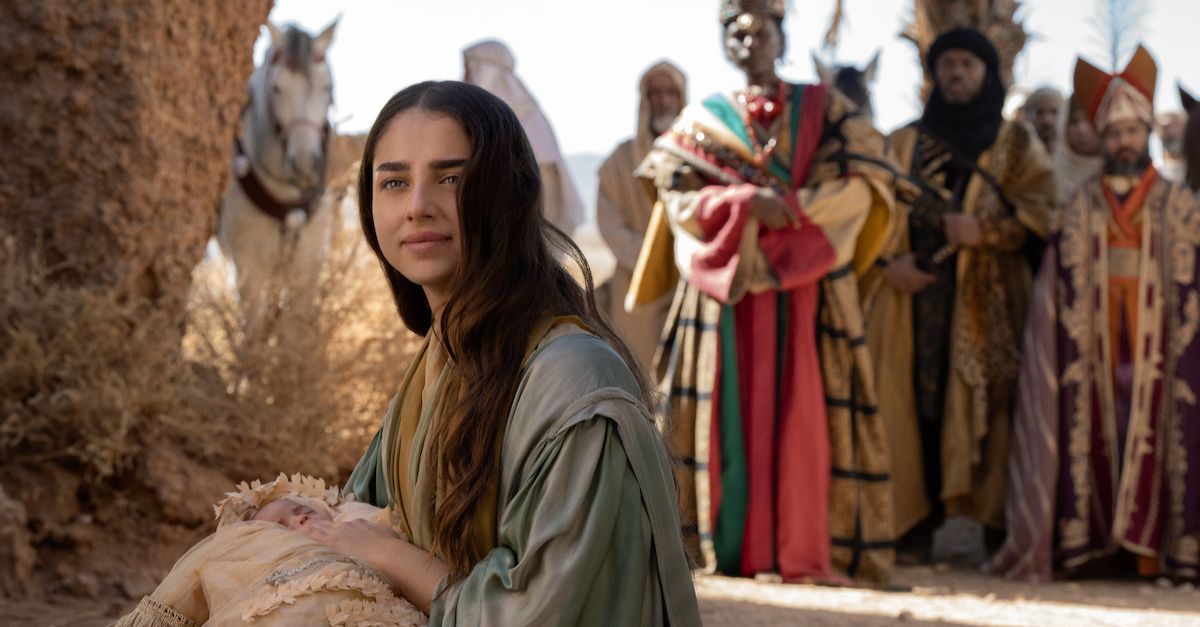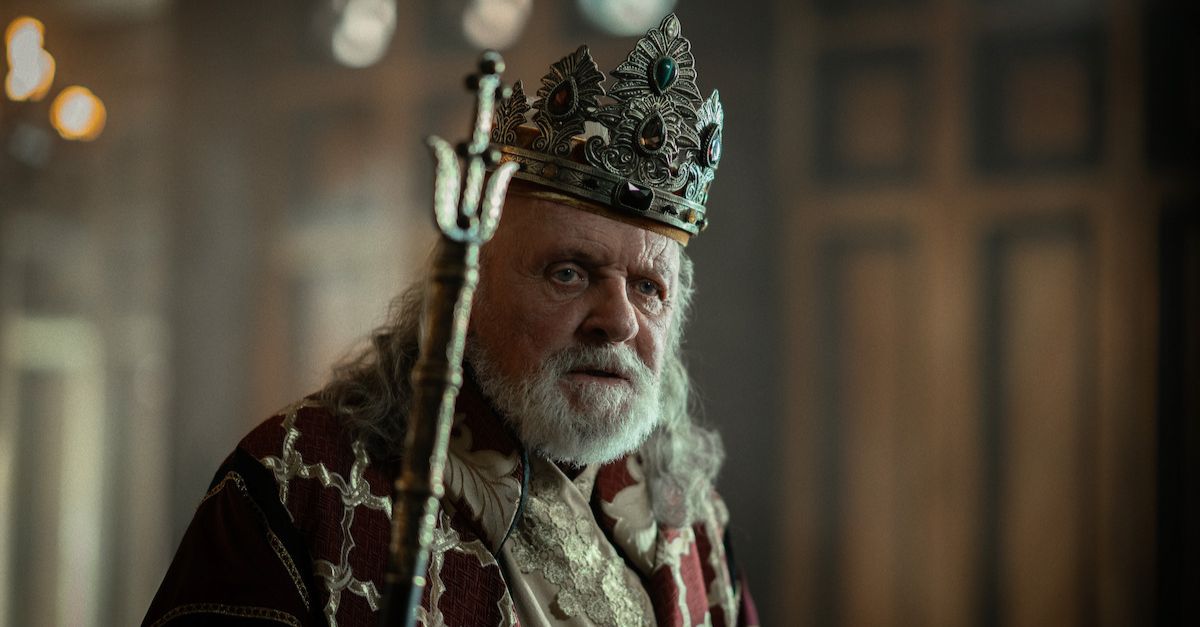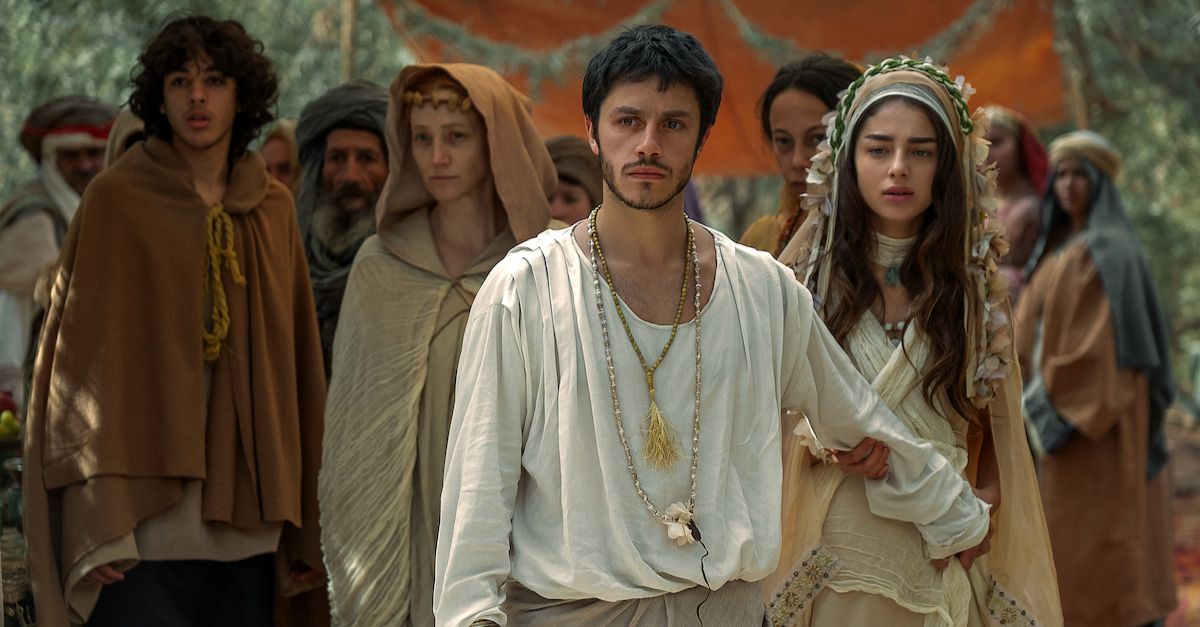3 Things You’ll Want to Know about Netflix’s ‘Mary’
Movies


Audio By Carbonatix
10:40 AM on Thursday, December 5, 2024
By Michael Foust, Movies

1. It's a Mix of Scripture, Tradition, and Creative License
Netflix's Mary includes the biblical story you know and love. The angel Gabriel visits Mary, telling her, "You are to become a mother and have a son. He will reign over the house of David." When Mary expresses surprise, Gabriel replies, "All things are possible with God. You will name him Jesus, and all the world will know Him, Mary, for you are blessed among women." A humble Mary responds, "Let it be me." Mary visits Elizabeth, who also is pregnant, and tells her relative, "This child in my womb jumps at the sound of your voice." A bright star appears over Bethlehem the night of the Christ child's birth, as shepherds come to worship. The film even includes a few biblical elements not seen in other Christmas movies, such as Anna and Simeon rejoicing over the birth of Jesus in the Temple.
Of course, the biblical account of Christ's birth is rather short, so Mary -- like nearly all movies about the Nativity -- adds elements not in Scripture. Many of those plotlines are from Catholic tradition. Mary's parents have names: Joachim and Anne. Unable to conceive, they earnestly pray for a child. (The Catholic Church celebrates her parents through feast days.) As a youngster, Mary is a servant in the Temple. (That is from the Protoevangelium of James, an apocryphal text.)
Other elements in the film have no historical basis, including a couple of major scenes in the final moments.
Yet the movie ends with a scene straight from Scripture, with Simeon declaring: "This child is destined to cause the rise and fall of many in Israel."
The Mary character in Netflix's film is who I imagine as I read the Bible: humble, faithful and full of grace. She cites Scripture. She prays fervently.
No doubt, Catholics and Protestants view Mary differently -- a contrast that the late Protestant pastor R.C. Sproul noted has led some within the Protestant tradition to undervalue her significance. Sproul once preached a Mother's Day sermon about her. "We're so much caught up in the polemic with the Roman Catholic Church about Mary, that we have missed a magnificent example of godliness," he said. He has a point.
Photo Credit: ©Netflix

2. It Features Well-Known Talent
Oscar-winner Anthony Hopkins delivers a compelling portrayal of King Herod, depicting him as a ruthless ruler obsessed with rebuilding and expanding the second Temple -- not to honor God, but to glorify himself. He shouts to the crowds: "I am your king!" He even murders his wife. (It's off-screen, but nevertheless not kid-friendly.)
Ido Tako portrays Joseph as a steadfast and devoted man who will protect Mary and her child at all costs.
Actress Noa Cohen is phenomenal in the lead role as Mary, portraying a woman who embodies humility -- the complete opposite of Herod.
"She has this grace, and she has this beauty, and she carries herself in such a wonderful way, but at the same time, she's completely accessible. She lets you in, and the audience will feel a closeness to her," director D.J. Caruso told Crosswalk.
Photo Credit: ©Netflix

3. It's a Door to the Gospel
Bible-based movies are like coffee. If you get three Christians talking about them, you'll probably end up with four opinions. In our hyper-critical society, criticism often becomes the instinctive first response -- whether about The Chosen, He Gets Us commercials or anything else that carries a Christian tag.
No doubt, Netflix's Mary will have plenty of detractors. And, yes, there are a few scenes I would have cut.
But, just perhaps, Christians living in an increasingly secular culture should first view Mary as a door to the Gospel. How often does a major American company promote a movie about the Savior of the world? How often does a major movie land on a streaming service that will have your hairstylist, cashier, or neighbor talking? We can gently tell them what the movie got wrong. We can give them the rest of the story. We can then tell them about the Jesus of Scripture.
At the movie's end, Mary looks into the camera and declares, "Love will save the world." That's not a full gospel presentation, but it doesn't have to be. That's our job.
Mary is rated TV-14 for violence and language. Coarse language: Mary is twice called a "whore." Violence includes battle scenes and stabbings (some bloody). We also see a body burning.
Photo Credit: ©Netflix


